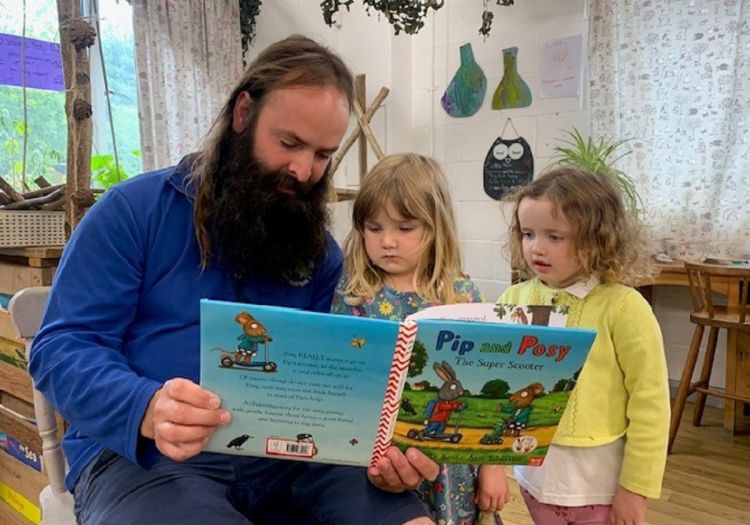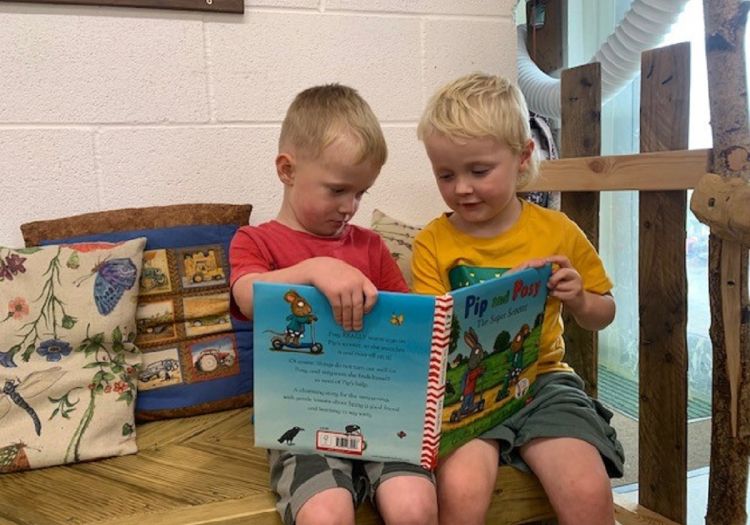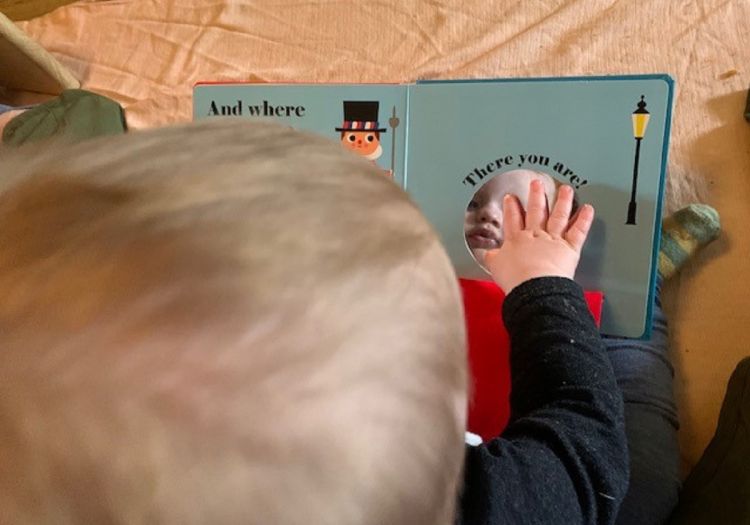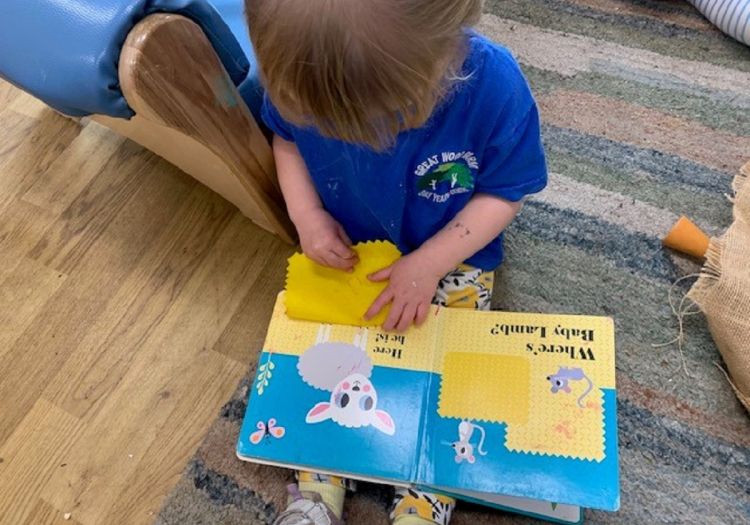Early Years Engagement in Books
People remember how stories make them feel!
There are many ways in which we can instil a love of books into our children from the youngest of ages, myself, Emily and Sharon recently completed an online team’s course with the author Camilla Reid who wrote the Pip and Posy books and she gave us a wonderful insight into different ways in which we can help to achieve this.
There are so many benefits of books from developing children’s cognitive development to social and emotional development. Developing a love of books from a young age will help as they go through school. They also help to create stronger bonds with adults and peers through shared experiences and enables you to discover and talk about lots of different life experiences.
Other facts that we picked up on from the course was the underlying power of a story in so many different aspects of life; they help to shape our understanding of the world through both personal stories and shared stories, they are able to facilitate emotional connection and engagement to allow us to be empathetic and understanding as well bringing the stories to life to be motivating and inspiring.
Books help to strengthen our learning and memory skills, enhancing our comprehension and improving our memories. Stories are able to take us somewhere else and be inspirational and transformational to allow people to confront challenges and achieve their potential whilst uniting people and shaping our stories. Listening to stories allows children to develop the language skills to express themselves clearly, furthermore, using their imagination to grow wild with things that they have read.
To help with the engagement of young children in particular, chunky books are helpful to develop their page turning skills. It is also important that children get introduced to books that have colours in them, where there are faces in books and a new picture on each page, the use of a mirror inside a book is also very powerful to allow children to see themselves. Interactive books with moveable attachments are good for children’s fine motor skills and to keep children engaged in the book.
It is very important that you enjoy reading with your child at home. Never underestimate the power of a 5 minute story before bed time to help develop so many skills and develop a love of reading.
The following are 10 tips for sharing books from Camilla Reid:
1. Make the priority to have fun with a book.
- There is no wrong way to share a book! Funny voices, pointing out interesting things in the picture, taking turns to 'read'- whatever makes you both smile!
2. Let your child choose what to read or look at.
- Take a trip to the local library and let them choose from the huge range. Each reading time, give them the treat of choosing. Don't worry if it seems 'too young' for them- something in it is interesting them- maybe the colours or pictures or familiarity.
3. Try to make it an interactive experience for your child
- Include them! Can they help turn the pages? Can they finish lines or rhymes? Can they lift the flaps? Can they make the same face as the character?
4. Relax! Feel free to diverge from the words.
Remember the priority is creating the love of books and stories. Add silly back stories to characters or add extra details or change the words to make them work for you.
5. Don't forget songs and rhymes.
- Poetry/song/rhyme books are just as important as stories.
6. Go on a journey through your book.
- Look at the front cover- what will happen? Talk about predictions for important parts. Discuss the feelings of the characters and how they change. Enjoy the resolution. And don't forget how much children love to say 'The End' as you close the cover!
7. Let your child know what a positive experience it was.
- Phrases like 'That was great reading' or 'I really enjoyed reading that with you' at the end go a long way with your child.
8. Make it a habit
- Find a time or place that works for you. If bedtime works as a cuddle, calm down and read time, that's perfect. If bedtime is stressful, find another time or place. Maybe at the breakfast table? Maybe first thing in the morning before they get out of bed? Maybe on the bus or waiting to pick up big brother or sister.
9. Make books and stories central to life.
- Try to have books easily accessible, so both you and your child can read as often as possible. See how many rooms you can have books in (yes, even in the bathroom!). Let them see you read. Use cookbooks and instruction manuals and encyclopaedias with them. Any excuse, use a book.
10. Make sure you enjoy it too!
-Children can pick up on how you're feeling. Find ways to make it unstressful and enjoyable for you too. Share books or poems from your childhoods. Use funny voices or encourage your child to do them. Tell them how you would end the story differently. Make them giggle! This can be a hugely precious bonding time.
We are equally aware that there are many challenges that arise such as the dependence on screens, cost of living crisis, time, parental confidence, no sure start centres and parents find it easier to hand it over to the teachers as its ‘their job’. At Great Wood Farm we have a bedtime library where you can borrow books to take home and read with your child ; making them accessible to all of our families and to make it feel special choosing a book.




